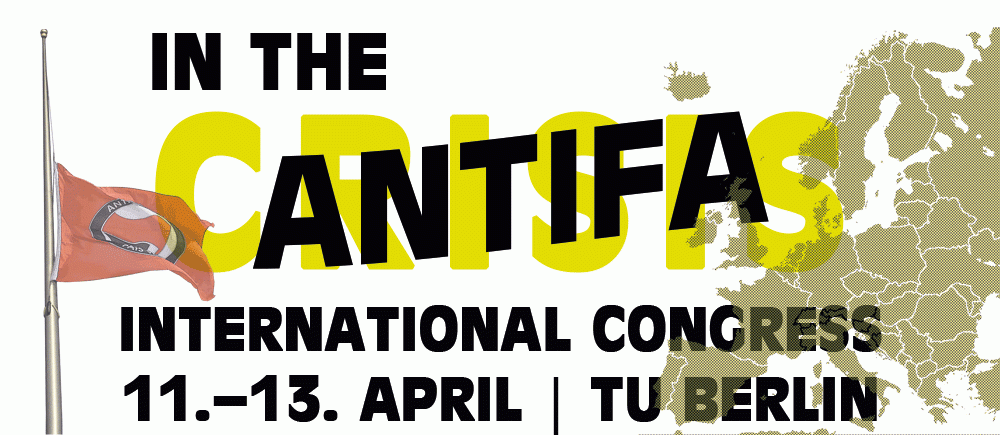Europe’s rightward lurch
The anti-Semitic and extreme right-wing Front National under Marine Le Pen and the Dutch right-wing populists under Geert Wilders are closing ranks and forging an alliance against Europe. In the UK, UKIP is agitating against migrants and demanding the country’s exit from the European Union. In Poland we are seeing the emergence of a neo-fascist movement modeled on Hungary’s Jobbik, uniting hooligans and extreme right wingers. The Greek neo-fascist outfit Golden Dawn has long been the third strongest party in opinion polls. And in early February, a narrow majority in Switzerland voted against “mass immigration”. This much is clear: since the outbreak of the Euro-crisis, nationalism and racism have been on the rise everywhere on the continent.
The extreme right is regrouping
In Germany, too, we can hear echoes of the same tune. The NPD (Germany’s premier neo-Nazi party) is trying to escape from its currently disastrous situation by driving forward campaigns against refugee homes. The newly formed Alternative for Germany is a party that plays host to both radical, neo-liberal opponents of the single currency and extreme right-wing forces. To be sure, Germany has not yet seen the emergence of a party to the right of the CDU/CSU (the main conservative parties) that would have been able to durably install itself at the federal (as opposed to state) level. But we keep witnessing attempts to channel existing fears about the crisis erupting in Germany in racist and nationalist directions. Whether in the debate about highway tolls for cars coming from abroad, or the invocation of local councils that are supposedly overwhelmed by the influx of Bulgarian and Romanian migrants – there is no end to open, explicit regress to racist prejudices, first and foremost by the Bavarian CSU.
Antifa confronts new challenges
In Germany and beyond, neo-fascist and right-wing populist parties are moving into position, everywhere in Europe they are using the current crisis to regroup their forces. Given the Euro-crisis and the social devastation it has wrought, they judge that they are in a good position to strengthen national and xenophobic arguments and discourses.
The antifascist movement has found it hard to analyse this rightward lurch in Europe. How should we judge these changes on the extreme right? What is the role of changing societal conditions in light of the crisis? What should be the focus of our work? What might adequate responses and counterstrategies look like? In Germany, these kinds of questions have been discussed largely at a local and regional level. And we are particularly looking forward to a lively and productive exchange with antifascists from other European countries!
The Conference in Berlin
The conference “Antifa in (the) Crisis” will offer us this opportunity. Together with you and activists from other European countries we want to discuss the current situation of the Antifa-movement and the effects of the crisis. We will open on Friday evening with an international panel (with participants from Greence, Hungary, Sweden and France) on racist mobilisations and antifascist perspectives in Europe. On Saturday evening, we will turn towards the situation in Germany. Headlined “Antifa in (the) Crisis?!”, the round-table will bring together representatives of different political currents – From NGOs to counselling services to trade unions – to debate the state of and challenges facing the antifascist movement in Germany. On Saturday and Sunday morning there will also be more in-depth workshops covering a variety of issues. Activists from (amongst others) Ex-Yugoslavia, Greece, Poland, Spain and Scandinavia will report on the extreme right in their respective countries. There will be workshops dedicated to issues like: “NSU and Antifa”; “Alternative for Germany?”; “Antifa between rural flight and survival fight”; “The politics of antifascist history”; “Protests against refugee homes”, but also “Working with Youth”, “Antifa between wage labour and activism” and “History and successes of the Antifa” or “Antifa and feminism”.
